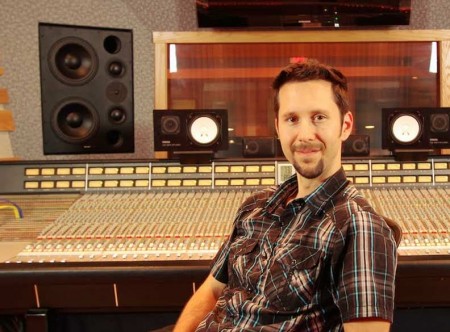
RC mentor Mike Johnson
Well, a few things. Number one, the fact that a lot of people are trying to get into this—they need to be steered in the right direction…It’s kind of like passing the torch. If people don’t pass the torch, then it gets lost and then eventually people would have to reinvent the wheel which is kind of a loss, if you look at it that way. So I really feel like, with the amount of people getting into this field, they really need to get passed on all the tools, all the tricks, you know, the profession itself. Otherwise, we’d have a bunch of bedroom engineers that wouldn’t be able to re-create the caliber of records that we’ve liked.
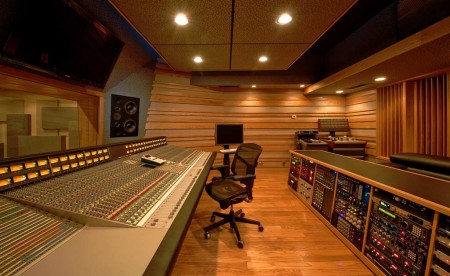
Control Room in Clear Track Studios
Because it’s in the right environment. I mean, you can’t really skip learning in the right environment, because then people don’t actually get what it is they’re going to be doing. Without the environment, they just imagine what they think it should be like. But when they’re there in the studio, they see it happen and experience it, hear it, they get to observe, you know, what a professional session is like, and the standards, and how good it really sounds.
RRFC: How do you go about kind of working with apprentices to determine whether or not they’re ready to start working with your own clients? What kind of people skills are you looking for?
Mike: They definitely need to be friendly. I mean, I realized at one point it’s not just about the skills, you know? The big part of being in this industry is, the client still needs to feel like you’re delivering a service. That comes across, all the way down to getting coffee for them. So they just have to have that confidence of, “Hey, I’m here to help.” And the client needs to feel like the apprentice or the engineer is interested in doing that. Not just doing it because they have to, you know, not faking it. It needs to feel a little more genuine because artists are going to be more sensitive. They’re going to perceive their environment and the people they are working with. So, I think these new guys just need to get it to a point that they’re comfortable to be friendly.
RRFC: Have you noticed anything about the current generation of audio students that is maybe different than when you were coming up and learning?
Mike: I think the technology in studios is less incredible to the new guys. For me, it was amazing, you know. The fact that we were able to record on the computer in the 90s was incredible. It blew me away. I thought, “Wow this is the future.” Today, kids in high school could be recording on equipment better than I could when I started.
RRFC: Do you think they understand and appreciate the actual signal flow of some of these engineering tools?
Mike: No, I don’t think so, because I don’t think the necessity of having to know is actually there. I think the truth is that with the ability to just buy things, and plug them in and get going in 10 minutes, as opposed to having to solder and wire up your own studio. With analog you have to know signal flow, if you don’t know it, it doesn’t work. Whereas with digital you technically just have to plug one thing in and the signal flow is automatically behind the scenes essentially. I think they’re missing that and I think that that is the kind of stuff that strengthened us from the last generation of guys.
RRFC: So do you take it as a personal sort of responsibility to make sure these guys understand that?
Mike: I do, and I show them. And this is why the big part of this is that they’re in an analog studio, along with Pro Tools of course, because you need to know both. Having them in that room, I physically show them, here are the patch cables, here are the mic panels. Cables are going through the walls, under the floors. I show them wiring diagrams sometimes. You know, you’ve got to know signal flow. It’s there. If you don’t know it, you can’t troubleshoot it, you can’t get a session going.
RRFC: What do you think it takes, to not just make it, but to continue to work day in, day out in the modern recording industry?
Mike: I really think the most important thing is obviously how you treat people. All the people in the industry that we work with aren’t going to want to work with an A-hole. They’re going to want to work with somebody who can get the session going, gives them solutions…So, I think that skill has to be there, and the people skills, and the problem solving skills. But also I really think that people, to be successful at this, have to have very good quality control abilities. They have to be able to recognize when something truly does sound commercial or industry standard, not just get excited because they’re having fun being in the room because that’s not what you’re getting paid for. You’re not getting paid just to have a smile and [be in] a studio, you’re getting paid ultimately for making a finished record. So quality control’s so important to that. They have to know, “All right, well what are our references? How good does a real commercial record actually sound in a control room, and what do I have to do to get it there?” The level of the art itself is sometimes underestimated.
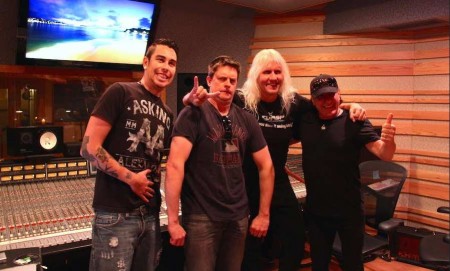
Johnny Whiteside (engineer), Jim Breuer (comedian), James Forbes (engineer), Brian Johnson (ACDC singer)
Last week we just had Justice League in here working on some tracks, some killer pop tracks. I’m sure they’ll be released at some point here. We just had
Jim Breuer, he’s a comedian, he’s incredible, he was doing a rock record in here with Rob [Rob Caggiano] from
Volbeat…Then Brian Johnson from AC/DC came in during that session, too, and worked on one of the tracks. The spirit of that stuff is so much fun. That’s what got me into rock, in the 80s when I was a kid, listening to this stuff. It was fun, right? It was really fun.
RRFC: When you look back at when you were starting out, did you ever think you’d have all this success and stick it out this long?
Mike: You know, I never thought about it because as a kid, I just had so much fun doing this. It was like climbing a mountain, you know, you just didn’t want to look down. You just think, “I’m going to keep climbing as high as I can.” Eventually a few people in my family asked me: “What do you want to do with all this stuff you’re doing? Where do you want to be 10 years down the road?” And it was just looking at the goals side of it that I said, “Well, you know, why don’t I make the goal to eventually have my own studio and work with a bunch of other people in the industry, and help bring it all together?” So, I kind of make everybody else’s projects my own, you know. I guess that’s the way I look at it. People that walk in here feel welcome to be here, and that’s why they keep coming here, too. They make good music here.

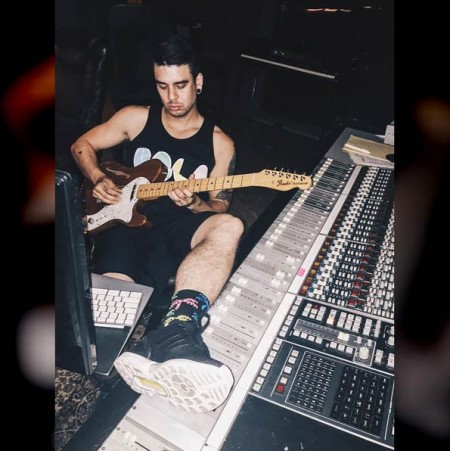
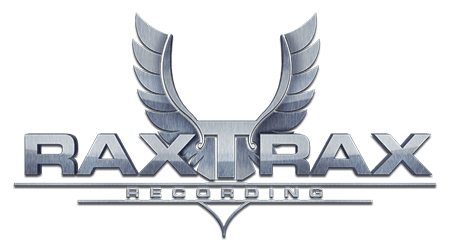 Fortunately, Charles says, his parents have always been supportive of his dream of producing, so his mother put up the money for him to attend the Recording Connection. He was placed in Rax Trax Recording in Chicago, where he was mentored by studio manager Andy Shoemaker. That’s where things began turning around for him.
“Andy was amazing,” says Charles. “He’d literally take any question I’d have, and we’d sit in that room if the time was available and just explore each topic until I understood it completely. It was great…I really can’t say enough about the wealth of things I took away from that studio, and I’m still not done yet.”
Given his personality and his background, Charles predictably proved himself to be a natural in the studio, which allowed him to advance quickly. “Once I got in the Recording Connection, it wasn’t long before they go through the whole shadowing plan, and then they let you start assisting,” he says. “I got into having my own sessions booked real quick.”
Fortunately, Charles says, his parents have always been supportive of his dream of producing, so his mother put up the money for him to attend the Recording Connection. He was placed in Rax Trax Recording in Chicago, where he was mentored by studio manager Andy Shoemaker. That’s where things began turning around for him.
“Andy was amazing,” says Charles. “He’d literally take any question I’d have, and we’d sit in that room if the time was available and just explore each topic until I understood it completely. It was great…I really can’t say enough about the wealth of things I took away from that studio, and I’m still not done yet.”
Given his personality and his background, Charles predictably proved himself to be a natural in the studio, which allowed him to advance quickly. “Once I got in the Recording Connection, it wasn’t long before they go through the whole shadowing plan, and then they let you start assisting,” he says. “I got into having my own sessions booked real quick.”
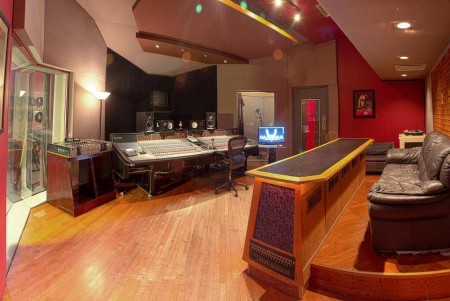
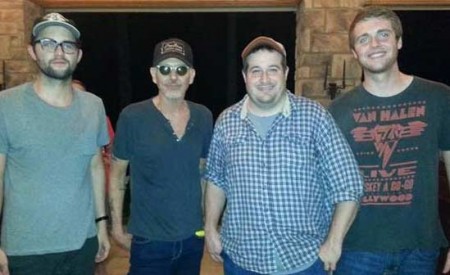
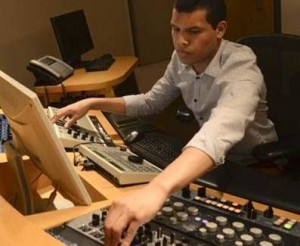
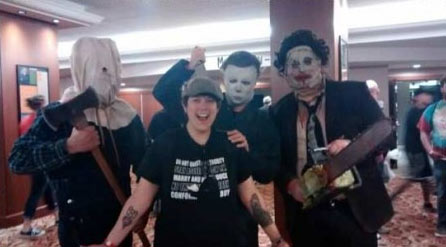 Ever wonder if being a fan can pay off? Film Connection apprentice Danni Winn (San Antonio, TX), a diehard lover of horror, recently wrote an article about the upcoming season of the show Holliston. Her words had a huge impact on fans and even the show’s cast, who shared her article via social media. What’s more, she’s been offered her own column at TheHorrorNation.net called “Girls Like Gore 2!” Congrats, Danni!
Ever wonder if being a fan can pay off? Film Connection apprentice Danni Winn (San Antonio, TX), a diehard lover of horror, recently wrote an article about the upcoming season of the show Holliston. Her words had a huge impact on fans and even the show’s cast, who shared her article via social media. What’s more, she’s been offered her own column at TheHorrorNation.net called “Girls Like Gore 2!” Congrats, Danni!

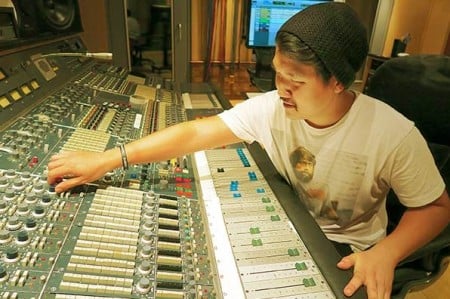



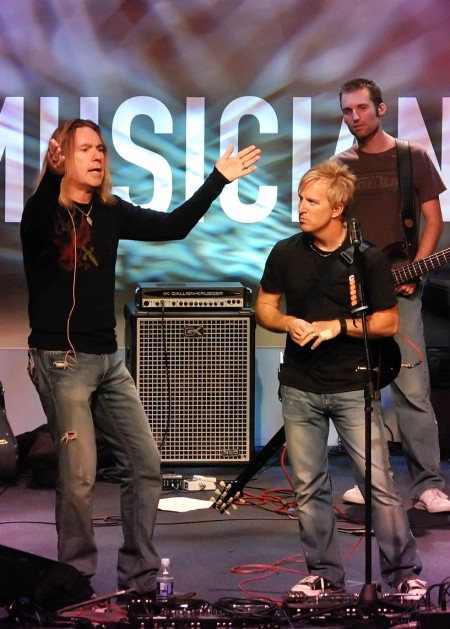
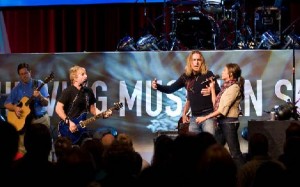 Included are two full days of fun and enlightening instruction and a chance to play for music industry pros at the evening Showcase!
We’re happy to offer this intensive 2-Day Live Performance Bootcamp for only $299. Seating is limited so act quickly!
**Hotel arrangements, lodging, food and travel are not included.
Included are two full days of fun and enlightening instruction and a chance to play for music industry pros at the evening Showcase!
We’re happy to offer this intensive 2-Day Live Performance Bootcamp for only $299. Seating is limited so act quickly!
**Hotel arrangements, lodging, food and travel are not included.





